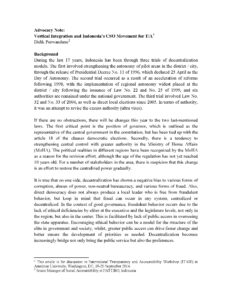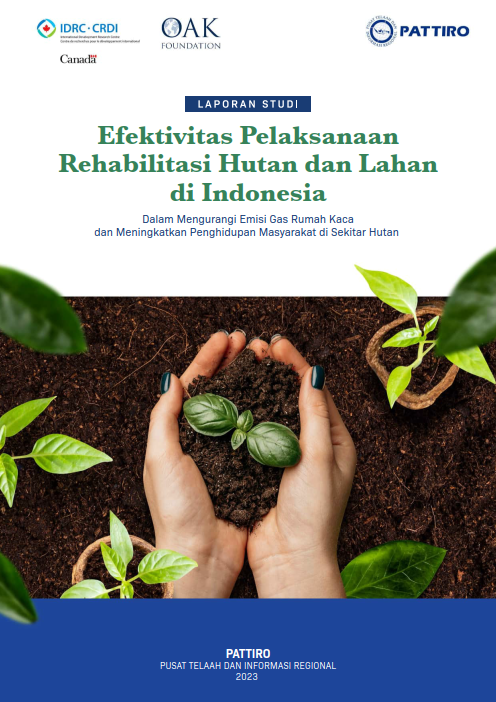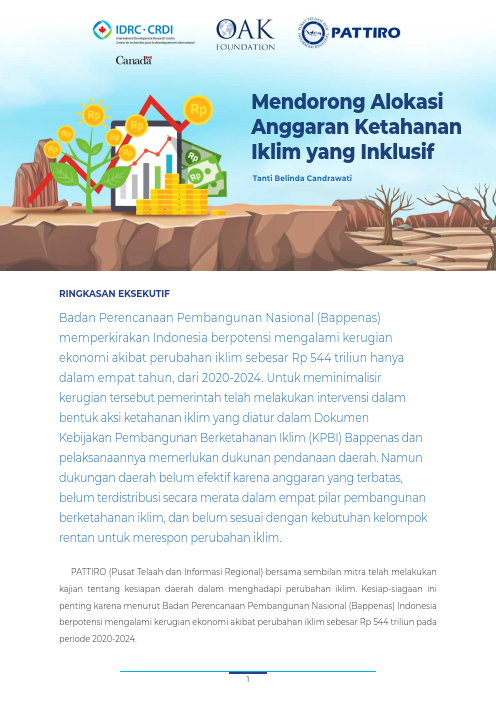 During the last 17 years, Indonesia has been through three trials of decentralization models. The first involved strengthening the autonomy of pilot areas in the district / city, through the release of Presidential Decree No. 11 of 1996, which declared 25 April as the Day of Autonomy. The second trial occurred as a result of an acceleration of reforms following 1998, with the implementation of regional autonomy widest placed at the district / city following the issuance of Law No. 22 and No. 25 of 1999, and six authorities are remained under the national government. The third trial involved Law No. 32 and No. 33 of 2004, as well as direct local elections since 2005. In terms of authority, it was an attempt to revise the excess authority (ultra vires).
During the last 17 years, Indonesia has been through three trials of decentralization models. The first involved strengthening the autonomy of pilot areas in the district / city, through the release of Presidential Decree No. 11 of 1996, which declared 25 April as the Day of Autonomy. The second trial occurred as a result of an acceleration of reforms following 1998, with the implementation of regional autonomy widest placed at the district / city following the issuance of Law No. 22 and No. 25 of 1999, and six authorities are remained under the national government. The third trial involved Law No. 32 and No. 33 of 2004, as well as direct local elections since 2005. In terms of authority, it was an attempt to revise the excess authority (ultra vires).
If there are no obstructions, there will be changes this year to the two last-mentioned laws. The first critical point is the position of governor, which is outlined as the representative of the central government in the constitution, but has been tied up with the article 18 of the clauses democratic elections. Secondly, there is a tendency to strengthening central control with greater authority in the Ministry of Home Affairs (MoHA). The political realities in different regions have been recognized by the MoHA as a reason for the revision effort, although the age of the regulation has not yet reached 10 years old. For a number of stakeholders in the area, there is suspicion that this change is an effort to restore the centralized power gradually.
It is true that on one side, decentralization has shown a negative bias to various forms of corruption, abuses of power, non-neutral bureaucracy, and various forms of fraud. Also, direct democracy does not always produce a local leader who is free from fraudulent behavior, but keep in mind that fraud can occur in any system, centralized or decentralized. In the context of good governance, fraudulent behavior occurs due to the lack of ethical deficiencies by elites at the executive and the legislature levels, not only in the region, but also in the center. This is facilitated by lack of public access in overseeing the state apparatus. Encouraging ethical behavior can be a model for the structure of the elite in government and society, whilst, greater public access can drive faster change and better ensure the development of priorities as needed. Decentralization becomes increasingly bridge not only bring the public service but also the preferences.
[__wpdm_package id='12542']




